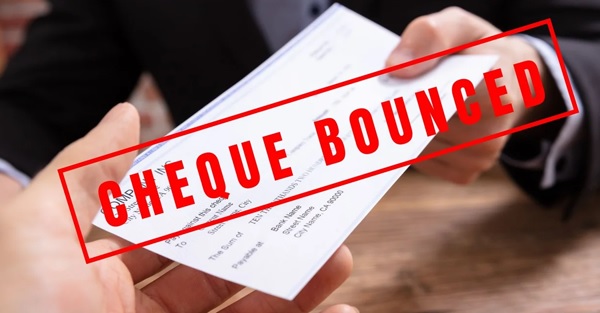Many times it happens that we give a cheque to someone for payment, but the bank refuses to clear it. That is, the cheque bounces. Cheque Bounce may sound like a minor matter, but its legal consequences can be quite serious.
If the payment is not made on time or the cheque is not cleared for some reason, the bank imposes a penalty and if the mistake is not rectified in time, it can lead to a lawsuit and even imprisonment. In many cases, it can even lead to imprisonment. Let us know what cheque bounce means, when is the penalty imposed, and what Section 138 says.
What does cheque bounce mean?
When a person presents a check issued by a bank to someone else for payment, and the bank fails to clear it for some reason, it is called a check bounce. This can happen for a number of reasons, including:
- No balance in the account
- Signature mismatch
- Entering the wrong date
- Mistake in account number
- overwriting
- Cheque expiry date
- Closure of the cheque issuer’s account
- Technical reasons from the bank, etc.
Banks charge penalty on cheque bounce
Banks charge a penalty when a check bounces. The penalty is levied by the person who issued the check. The penalty can vary depending on the reason. Each bank sets a different amount. Typically, it ranges from ₹150 to ₹750.
Cheque bouncing is considered a crime
In India, check bouncing is considered a crime. According to Section 138 of the Negotiable Instruments Act, 1881, check bouncing is a punishable offense. According to this section, if a person knowingly issues a check that bounces and fails to pay the amount within the stipulated time (15 days), they can be punished. Section 138 provides for a sentence of up to two years’ imprisonment and a fine, or both.
When does the time for jail come?
This is not true; as soon as a check is dishonored, the payer is prosecuted. When a check bounces, the bank first issues a receipt to the creditor, explaining the reason for the check bounce. The creditor can then send a notice to the debtor within 30 days. If the debtor doesn’t respond within 15 days of the notice, they can approach the court. They can file a complaint in a magistrate’s court within one month. If they still don’t receive their money, they can sue them. If found guilty, they can face up to two years in prison, a fine, or both.
How can one avoid cheque bounce?
- Always check the account balance before giving a cheque.
- Enter the correct signature and date.
- If it is a post-dated cheque, ensure that there is sufficient amount in the account on that day.
- Use electronic payments (UPI, NEFT) to avoid bounce.




